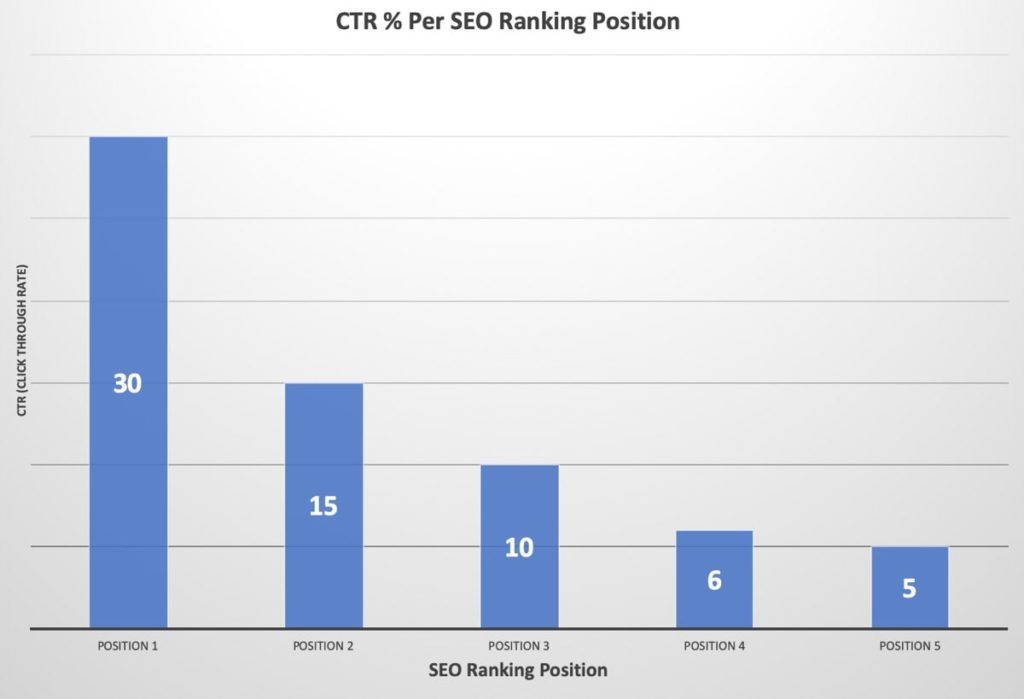Search Engine Optimization (SEO) is a vital piece of your online business. Every day, millions of users are turning to search engines for answers to their questions and solutions to their problems. As a business owner, that’s exactly what you’re there for — you provide a product or service that’s solving someone’s problems.
Having a solid content strategy that uses SEO best practices is your opportunity to gain attention from all of those people looking for answers. The more traffic you can drive to your site, the more customers you’ll eventually collect.
What exactly is SEO?
Search engine optimization is the process of increasing the visibility and searchability of your website through organic search engine results. Your goal is to attract both quality and quantity traffic.
Quality traffic means that a user is actually finding what they’re looking for after they’ve typed in a query and ended up on your site. Having a high quantity of the right kind of traffic is what’s going to happen after you’ve optimized your SEO.
When you type a query into a search engine, it uses a crawler that goes out into the vast galaxy of the internet and gathers data. It then feeds all this information through an algorithm in an attempt to match data to your query. While there’s a lot of different factors in play here, these are some of the biggest contributors to your ranking factors:
- Quantity & quality of links back to the site
- Relevance, quantity, length, readability, and freshness of content
- Page load speed
- Social metrics (tweeted links, Facebook shares, etc.)
- Keyword matches
How keywords work and why they’re important
When a person pulls up a search engine looking for answers, the search engine uses the keywords that person types into the search bar to attempt to find what they’re looking for. It’s important as a business owner to understand what phrases your potential customers are using. You want to be able to match your phrasing as close as possible to what someone would type into a search bar.
Using strong keywords is a part of your on-page SEO. It helps the search engine crawlers to understand the context of your content. If you do your keyword research before you create content, you’ll help to provide relevant results.
Why SEO Matters
With a better understanding of SEO and how it works, let’s take a look at these juicy facts that really drive home just how important it is to have a good strategy in place:
1. Organic search is the primary source of all web traffic
Most often when people turn to the internet, their journey begins at a search engine (with Google dominating the scene by a landslide). All of the unpaid, ad-free results that turn up are considered organic search results.
Now take into account that 93% of all online experiences start on a search engine. Plus, in a study done by Hootsuite, 81% of people searched online for a product or service to buy in a month period. What this means for your business is that if your website isn’t searchable, you’re simply not going to get found organically.
2. Google uses mobile-focused indexing
You’ve probably already heard that we live in a mobile-first world these days. We’ve gotten to a point where there’s actually more people searching on their phones than there are on desktop. Google is and always will be user-centric, so your SEO is affected by positive user behavior signals.
There are things that tell the search engines if your site has good user experience. For example, the time a user spends on a site suggests how easy it is to navigate and quantifies the page’s value. Faster loading time ranks higher, and if your site is made for mobile, it will load faster on mobile than if it’s not.
Considering the fact that worldwide, more people own a smartphone than a toothbrush, having a responsive site is super important to your overall SEO strategy and your business in general. Not to mention, Google now eliminates you from search engine results pages (SERPs) if your site isn’t mobile friendly.
3. Customers are doing their research before purchasing a product or service
Your SEO efforts help customers to make their buying decisions. These days, people are taking their research seriously. In fact, 81% of customers do some online research before purchasing an item, and 47% of consumers view 3-5 pieces of content created by a company before talking to a salesperson about it.
In other words, they’re looking for quite a bit of information before they click that “Buy Now” button. Those pieces of content they’re looking at before they engage any further? That’s where you have the opportunity to affect the buying cycle. Your meta descriptions, product or service descriptions, blog articles, and social media posts can all be optimized to encourage the sale.
4. Most people don’t make it past the first page of Google results
If a tree falls on the second page of search results, will anybody hear it? The first five organic results amount for more than two thirds of all the clicks. Furthermore, 75% of people never scroll past the first page of Google results. Never! They’ve already found what they were looking for before they can get past that first page.
If you haven’t put any effort into your SEO, where do you think you’re ending up on those results pages? You’ll be lost in a sea of never-to-be-found webpages.

5. Local SEO is becoming increasingly important
In 2014, Google altered the way local businesses could compete with outranking national brands when they rolled out the Pigeon update. This update increased the ranking of local results in search. In that same year, a study by Search Engine Land found that 78% of location-based mobile searches resulted in an offline purchase.
People are looking to find businesses near them when they’re in need of a product. In the last few years, “where to buy” + “near me” mobile searches grew by over 200%. Within these searches, 72% of consumers who did a local search visited a store within five miles.
6. Content marketing reigns supreme
Yes, you really should be blogging. The more high quality, relevant content you’re producing, the better your SEO will be. Search engines like websites that establish authority, and one way to gain authority is through a lot of valuable content. You’ll also get noticed by Google if you’re consistently putting out fresh information.
Not sure if it’s worth your time? Companies that blog produce 67% more leads than those who don’t. Furthermore, websites with blog posts get 434% more pages indexed and 97% more indexed links. That equates to higher rankings on search engines, which in turn leads to more traffic on your site. More traffic and more repeat users leads to more conversions.
Now’s the time to shine. If you thought search engine optimization wasn’t a big deal, hopefully you’ve changed your mind by now. The world is moving increasingly online, and your business needs to be using good practices to ensure you’re getting found out there.




